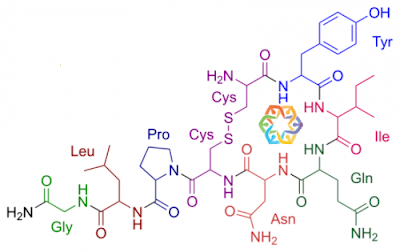Shame vs Guilt
Although shame and guilt may seem similar, shame is highly correlated with addiction, depression, and aggression. In contrast, guilt is linked to empathy and understanding other perspectives.
What's the difference?
Shame is a focus on self, guilt is a focus on behavior. Shame is, "I am bad." Guilt is, "I did something bad." How many of you, if you did something that was hurtful to me, would be willing to say, "I'm sorry. I made a mistake?" How many of you would be willing to say that? Guilt: I'm sorry. I made a mistake. Shame: I'm sorry. I am a mistake.
But it's not just a petty matter of semantics:
Shame is highly correlated with addiction, depression, violence, aggression, bullying, suicide, eating disorders.
Here's what you even need to know more: Guilt is inversely correlated with those things. The ability to hold something we've done, or failed to do, up against who we want to be is incredibly adaptive. It's uncomfortable, but it's adaptive.
Clinical psychologist Mary C. Lamia explained in Psychology Today that bullies are particularly shame-prone. She wrote, "That means they are afraid their failures or shortcomings will be exposed. A person can have problems with shame and still have high self-esteem, and this is what makes a person act like a bully." This study (and others cited in it) supports that shame contributes to violence and anger arousal.
The solution isn't to get rid of shame. Shame is natural and comes with our human relationships. However, we've been taught, "Never let them see you sweat.: Be vulnerable.
The Journal of Personality suggests that guilt has been linked to prosocial, relationship-enhancing effects. One study found that shame was linked to personal distress, whereas guilt was linked to perspective taking.
What's the difference?
Shame is a focus on self, guilt is a focus on behavior. Shame is, "I am bad." Guilt is, "I did something bad." How many of you, if you did something that was hurtful to me, would be willing to say, "I'm sorry. I made a mistake?" How many of you would be willing to say that? Guilt: I'm sorry. I made a mistake. Shame: I'm sorry. I am a mistake.
But it's not just a petty matter of semantics:
Shame is highly correlated with addiction, depression, violence, aggression, bullying, suicide, eating disorders.
Here's what you even need to know more: Guilt is inversely correlated with those things. The ability to hold something we've done, or failed to do, up against who we want to be is incredibly adaptive. It's uncomfortable, but it's adaptive.
Clinical psychologist Mary C. Lamia explained in Psychology Today that bullies are particularly shame-prone. She wrote, "That means they are afraid their failures or shortcomings will be exposed. A person can have problems with shame and still have high self-esteem, and this is what makes a person act like a bully." This study (and others cited in it) supports that shame contributes to violence and anger arousal.
The solution isn't to get rid of shame. Shame is natural and comes with our human relationships. However, we've been taught, "Never let them see you sweat.: Be vulnerable.
The Journal of Personality suggests that guilt has been linked to prosocial, relationship-enhancing effects. One study found that shame was linked to personal distress, whereas guilt was linked to perspective taking.


Comments
Post a Comment